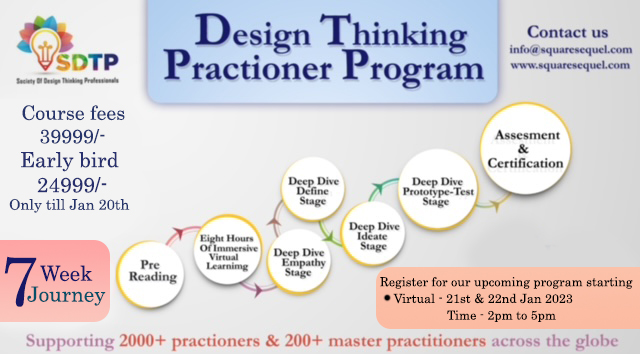It’s not an easy journey, to get to a place where you forgive people. But it is such a powerful place, because it frees you.
– Tyler Perry
We people have a way of dealing with feelings of hurt, resentment, negative emotions, and thoughts. We go back and forth with those feelings, however, never try to get rid of them. We give them the power to torment us and our peace of mind. It is an unfortunate fact of life to get hurt and be mistreated by others. It is someone else’s doing, but we keep on punishing ourselves on an ongoing basis.
Every individual has a unique response or reaction to a situation, similarly, we have our way of responding to the feeling of hurt. It is painful for some people to forgive others, while some stand out emerging victorious in such a situation. When we look at the bigger picture of the forgiving graph, our way of handling hurt can be put under three buckets:
- Trust: It hurts the most when we blindly trust someone, and they do not outshine our expectations.
- Indifference: It is the way when a person hurts our feelings, and it doesn’t matter to us. Neither do we take it to our heart, nor do we forget it.
- Time: It is when we let go of the pain with time. It becomes a faded memory, and we set our feelings and emotions free from the hurt.
If we talk about the opposite of forgiveness, every individual comes up with a word suiting their experiences with forgiveness. Below is the real-time data based on the research we conducted.
| Grudge | Ruthlessness | Forgive and Forget | Begrudging | Hurt |
| Disappointment | Offended | Belligerent | Resentment leads to revenge | Holding on |
| Rude | Punishing Oneself | Vindictiveness | Compassion | Selfishness |
Our experiences teach and uplift us to reach a level higher in life. Similarly, every phase in our life has different definitions of forgiveness and hurt. One year ago, we might have been feeling hurt, resentment, or offended, but a year might change all the other definitions of compassion. There is no single definition to our feelings, and how we respond to the same situations in different stages of life.
How to Decode Forgiveness?
Is it that important for us to forgive someone, may it be any relationship? Why should we forgive someone? For what reasons should we forgive someone? Most importantly, whom shall we forgive? People make us angry, they hurt us, but do we resent them? Angerness emerges somewhere from the depths of our expectations when we want people to behave in a certain way, and they don’t do so.
So, this is how we turn out to create our world of expectations, and when it does not get fulfilled, we end up torturing ourselves for raising the bar of expectations. People might hurt us and move ahead in life, but we give that hurt the power to come over us. We create a cozy space for that hurt in our hearts and let it grow.
If we do not want this hurt to outgrow the entire space in our hearts, then we have to deal with it. Here are some of the ways to accomplish it.
1. Complaining
We tend to develop different ways and means to express our disapproval over anger. Complaining is just a meek form of anger where we express our resentment. When it is impossible to contain the anger, it is okay to erupt like a volcano. It will relieve the inner tension and give us some space to think about it. We can begin with the reason for being angry, and who made us angry, and that’s where we hit the road towards our forgiveness journey. It is best to make a list of people to forgive.
2. Better Learn Than Regret
If we only ponder upon the way that person behaved or put ourselves in their shoes to understand their side of the story. The question is, “Why did he/she do what they did?” As there are two sides to the coin, every story has our version and that person’s version. It depends on us how we take in the whole situation, do we have an opinion about them, do we have any preconceived notions or any experience with that person that led us to behave the way we did? If we take a pause and think about what could have triggered that person to behave in such a way, then we will be able to cool down a bit. This self-reflection will help us gain a new perspective.
3. It’s Okay Not to be Okay with the Actions
When we choose to forgive, we can disagree with another person’s actions. Here, we have to understand the person, however, agreeing to disagree with their doings is up to us. If we agree with them to forgive, then they will find it okay to keep doing the same and even more. We have all the right to make them understand that their actions are unacceptable, so they do not repeat them in the future.
4. Know the Difference Between Boundaries and Fence
Creating boundaries is a way towards self-care, and it is a choice to build a fence around. We are often confused when it comes to fencing and boundaries. When we open up to ourselves and others about our expectations, needs, limits, and capacity, then we introduce boundaries. Boundaries are healthy and a great way to understand self-love and self-respect. When it comes to a family member or someone from our inner circle, it is our choice to set boundaries or fences for them. Everything comes down to our free will at last, but give it a thought before creating either boundaries or fences, are we caging ourselves within those walls or keeping others outside?
5. Inner Peace is the Synonym of Forgiveness
Forgiveness sets us free of the burden we carry along, it liberates us and gives us an elixir of inner peace. When we pile our thoughts with hurt and remorse, we unknowingly make our souls heavier. However, when we decide to release it all through the act of forgiveness, we walk free of all that was bringing us down and take a new leap in life. Forgiving ourselves and others can even help us meet our higher self when we experience greater inner peace. The person might not be worthy of our forgiveness, however, our mental peace matters.
Forgiveness comes with everyday practice, and we do not have to be a saint to perform it. When we do it time and again to maintain a healthy distance through our fresh perspective toward people and life, it becomes a healthy habit. It is a gift to better the quality of our relationship with ourselves. This life’s journey is about our discoveries, inventions, and revelations about ourselves, and forgiveness is the first step to successfully entering the realm of self-discovery.
Forgiveness is a gentle balm to all the pain and suffering we carry along in life. There is no point in letting anyone play with our inner peace, letting anyone shake our mental peace. Let us all step up and chuck out all the rent-free negative thoughts residing in our heads and let the light conquer the darkness within. According to a saying by Buddha, “Anger is like holding onto burning coal in your hand, nothing will happen to the other person, but you will get burnt.”
Let this thought sink in our souls, and let us all try to let go of the feeling of anger, hatred, or resentment because the other person might not be aware of it, and it will keep affecting our peace of mind. That person finds no difference in his life, and it goes on smoothly, yet we are here building up a volcano in our heads. Forgiveness is a state of mind, a feeling, an emotion that defines us as an individual in a way that aligns with the world’s perspective.
Our mind is like a garden, and if we keep a watch and grow beautiful plants, it will give us beautiful and colorful flowers. However, if we leave it be for some time, weed will take over all the beauty. Similarly, if we grow seeds of empathy and forgiveness, then there will be no room left for resentment and hatred. We are the gardeners of our lives, and it is our responsibility to grow healthy seeds and throw away weeds.
Written By: Dr. Jimmy Jain
Edited By: Afreen Fatima
Society of Design Thinking Professionals










One comment
Jagjeet Singh
March 11, 2022 at 12:55 pm
Jain Saab, nicely written and explained.
This shall help many readers.